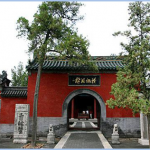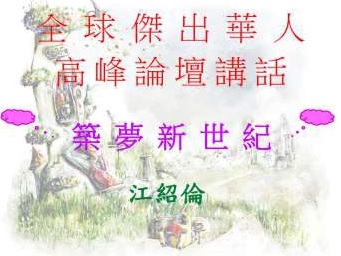《琴歌》 李頎 (690-751)
主人有酒歡今夕 請奏鳴琴廣陵客
月照城頭烏半飛 霜淒萬木風入衣
銅爐華燭燭增輝 初彈淥水後楚妃
一聲已動物皆靜 四座無言星欲稀
清淮奉使千餘里 敢告雲山從此始
Dulcimer Music Li Qi (690-751) 江紹倫譯
The host has ample wine for everybody this eve
Invited the dulcimer master plays the Guangling at ease
Toward the moonlit city wall birds flying free
The frosty wind reduces the foliages of many trees
Lamps and candelabra render the room bright
The maestro plays Green Waters then the Chu Concubine
Hearing a single melody the audience sits absolutely still
In the silence even stars disappears but a few
My mind returns to my diplomatic post a thousand li away
Dare I tell the clouds and hills here I’d rather stay



